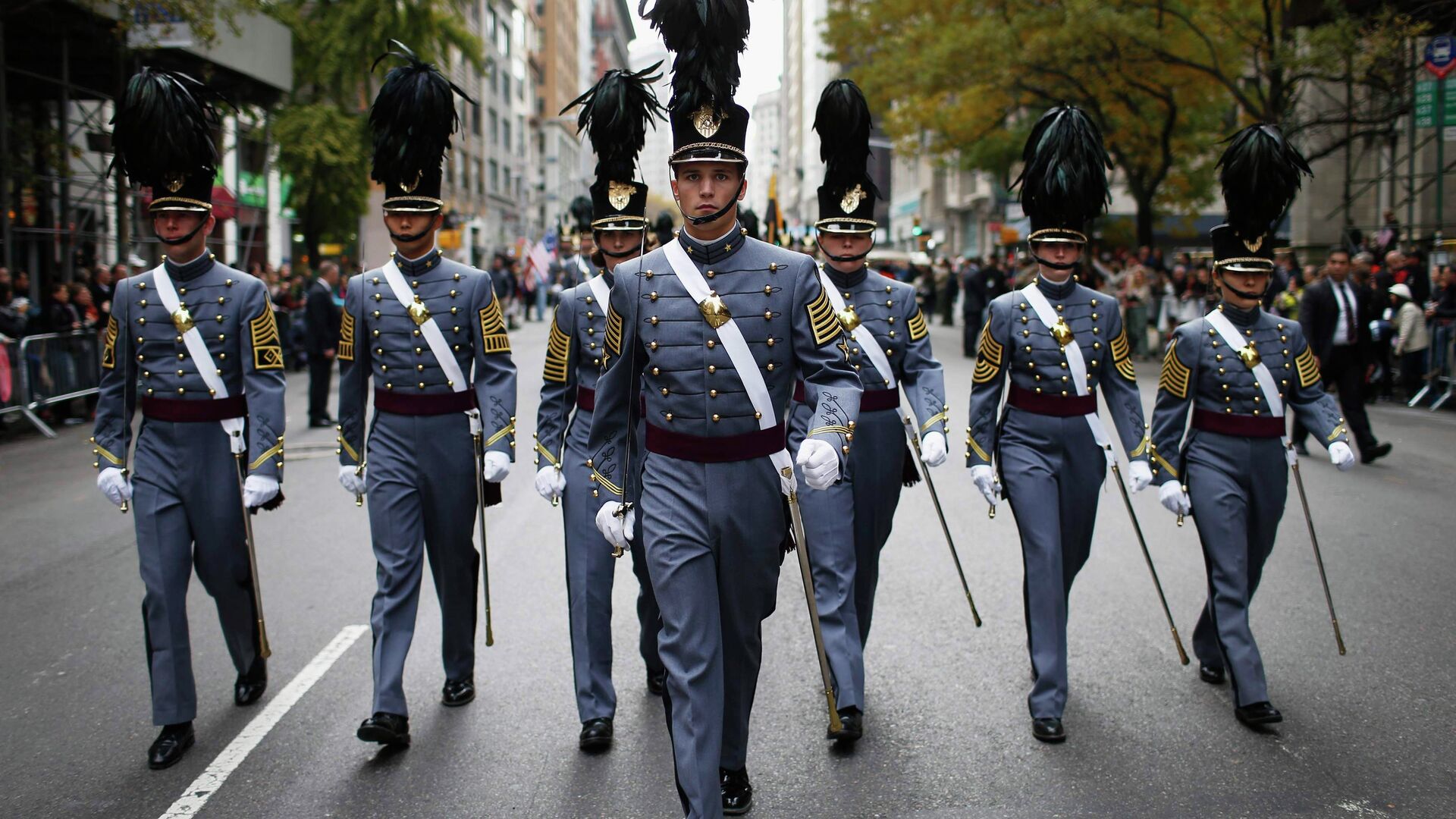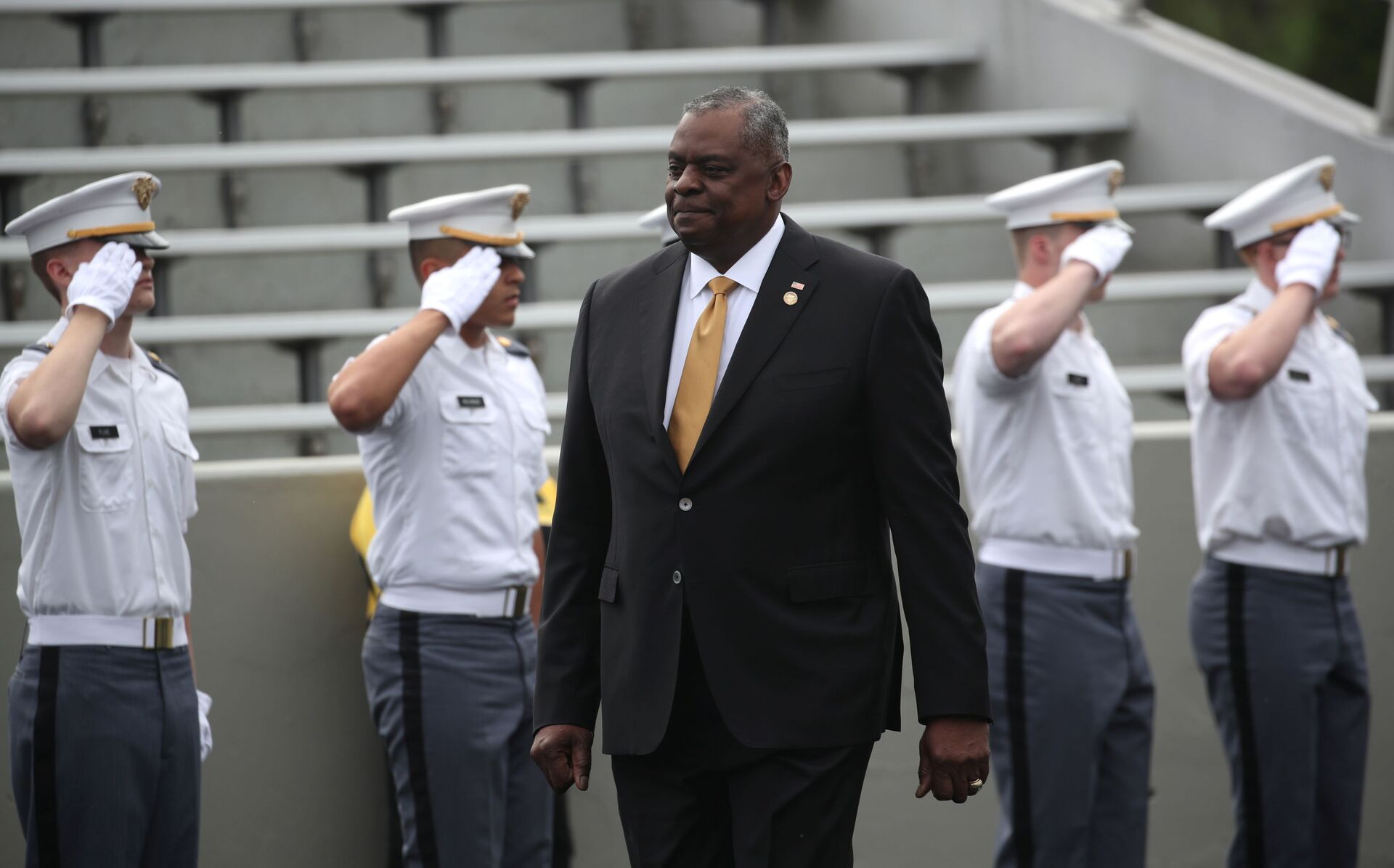Does Biden Fear a Coup? Why US President is Kicking Trump Appointees Off Military Advisory Boards
12:39 GMT 10.09.2021 (Updated: 16:22 GMT 08.12.2022)

© REUTERS / Mike Segar
Subscribe
The Biden administration urged 11 officials appointed by former President Donald Trump to military service academy advisory boards to resign or be dismissed, CNN reported earlier this week, citing a source familiar with the situation. But has this unorthodox move been motivated by spite or fear?
The list of Trump appointees subject to Joe Biden's purges includes former national security adviser Herbert R. McMaster, retired American four-star general John M. "Jack" Keane, former US Secretary of the Air Force Michael Walter Wynne, retired Army Capt. Meaghan Mobbs and others. Former White House press secretary Sean Spicer and former senior counsellor to the President, Kellyanne Conway, who currently serve respectively on the advisory boards of the Naval Academy and Air Force Academy, have also been asked to resign.
White House Press Secretary Jen Psaki confirmed on 8 September that the request had been made, emphasising that the president's goal is to ensure that the people appointed to serve on these boards are "qualified" and "aligned with [his] values." The military academies advisory boards are supposed to supervise "the morale, discipline, social climate, curriculum, instruction, physical equipment, fiscal affairs, and academic methods" among other matters.

Graduating Air Force Academy cadets assemble in unison for their graduation ceremony for the class of 2015, at the U.S. Air Force Academy
© AP Photo / Brennan Linsley
"The recent edict by the Biden administration to fire all military academy board members appointed by Trump from Naval, Air Force and West Point is consistent with Biden’s obsession to wipe away anything with Trump’s name on it, even if it’s good for America and its institutions," argues Marc Little, a conservative political commentator and lawyer, dubbing the move "unprecedented and purely partisan".
Little highlights that the decision has been taken in the wake of Biden's botched withdrawal from Afghanistan which has harmed America's image in the eyes of Washington's allies and the international community.
Woke DoD at all costs?
— Warren Davidson (@WarrenDavidson) September 8, 2021
Board members are appointed for a term. Joe Biden is attempting a purge. Congress needs to use #NDAA to stop him from shamelessly politicizing the military. https://t.co/jAfWlQcjPu
Instead of adhering to US military protocol "to leave no American behind" President Biden demands the military focus on critical race theory and the climate and fires "qualified - if not overqualified - board members from military academies," according to the commentator.
Meanwhile, the Trump appointees have not given up and some of them have sought to challenge Biden's decision. Sean Spicer told Newsmax on Wednesday that he would not submit his resignation and would be joining a lawsuit to fight this. For her part, Kellyanne Conway posted a statement on Twitter also saying she would not resign.
"Your decision is disappointing but understandable given the need to distract from a news cycle that has you mired in multiple self-inflicted crises and plummeting poll numbers," Conway wrote addressing Joe Biden.
No. It’s a three year term. @WhiteHouse pic.twitter.com/c9pZOENNPR
— Russ Vought (@russvought) September 8, 2021
Three other Trump appointees, namely Russell Vought, Meaghan Mobbs and David Urban also refused to step down, according to CNN. Little expects that more lawsuits will be filed challenging the Biden administration's recent attempt to get rid of Trump's legacy.
"The bi-partisan leadership of our military cannot be compromised by partisan politics, and I am confident that leaders such as Herbert R McMaster, who was likewise fired by Biden, will not sit by and suffer greater erosion in the trust of one of our greatest institutions, the last not fully poisoned by partisan politics," Little says.
The commentator notes that he himself has fallen prey to the Biden administration's partisan purges. He was nominated to the Department of Homeland Security Alternatives to Detention Case Management Pilot Program in 2020 by the Trump administration. However, in January 2021, all of the president’s nominations were rescinded in a memorandum by Katherine Culliton-González, DHS Officer of Civil Rights and Liberties, according to Little. He points out that Biden's migrant policies have already led to "the greatest and most dangerous influx of illegal migration across its southern border, of human and sex-trafficking of children, weapons and drug trade by the Mexican cartel."

U.S. Secretary of Defense Lloyd J. Austin III arrives for graduation ceremonies for the class of 2021 at the United States Military Academy (USMA) West Point, in Michie Stadium in West Point, New York, U.S., May 22, 2021.
© REUTERS / MIKE SEGAR
"What we are witnessing is the further politicisation of the military and the purge of anyone who is not willing to go along with the oligarchic agenda," echoes American writer E. Michael Jones, an editor of Culture Wars. Still, he suggests that there could be yet another reason for the purge, namely a "concern about a military coup".
Biden's recent move followed his administration's decision to halt all Pentagon advisory panels' activity for seven months in February 2021. At that time, Biden's Secretary of Defence Lloyd Austin ordered a review concluding that hundreds of DoD advisory board members had to resign, including over 30 of the Trump administration's appointees. According to Defense News, of the 42 advisory panels listed in Austin’s initial memo, 31 had their members removed. In early September Austin agreed to restart 16 defence advisory boards.

